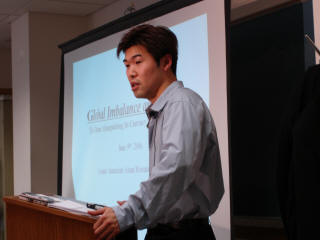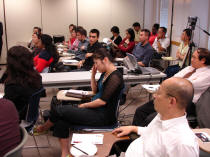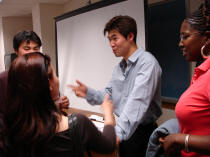“Everybody is talking about China. In fact, everybody should be talking about China. According to the Nobel Laureate economist Joseph Stiglitz of Columbia University, China is today experiencing “the most remarkable economic transformation in history.” But this “most remarkable economic transformation in history” has come with its cost, and this cost could be huge. Economists such as Morgan Stanley Andy Xie argues that China has been stuck in “macro trap” that disallows itself to freely control its interest rate or the exchange rate, and the hard landing due to the real estate bubble in 2007-08 is very possible.
The other side of the picture of China’s trade surplus has been the US current account deficit that has reached an unprecedented level of $820 billion in 2005 alone. Policymakers such as Schumer and Graham have been trying to impose tariff rates on the Chinese imports. Now Grassley and Backus are taking actions to put sanctions on the Chinese imports if necessary. John Snow of the US Treasury Department expressed his opinion that China has been manipulating its currency exchange rate for its export advantage. Chinese President Hu Jintao came to Washington to discuss the trade friction issue with President Bush but only left without making much progress. People’s Bank of China has recently risen its domestic lending rate by 27 basis point and appreciated RMB below 8RMB-1USD. Yet, the internationally community remains unsatisfied.
The world has seen such trade frictions before; during the Great Depression or the rise of Japan in the 1980s. Unfortunately, the world has never witnessed any good result out of these economic conflicts either. For example, economists such as Robert McKinnon of Stanford University points out that one of the main causes of Japan’s Lost Decade in Great Deflation was due to the forced appreciation of Japanese Yen in the 1980s.
My research combines information from different credible sources, and reaches several conclusions. Some of them are:
- There has been an economy recycle between the US and China.
- China does manipulate currency exchange rate, although plenty of countries have done the same in history.
- People’s Bank of China has not raised its rate partially to justify the devalued exchange rate of Chinese currency Renminbi.
- RMB is pegged to the basket with the USD being the dominant force inside the basket.
- The global imbalance has been expanding in its magnitude day by day, and both China and the US have roles to play.”




